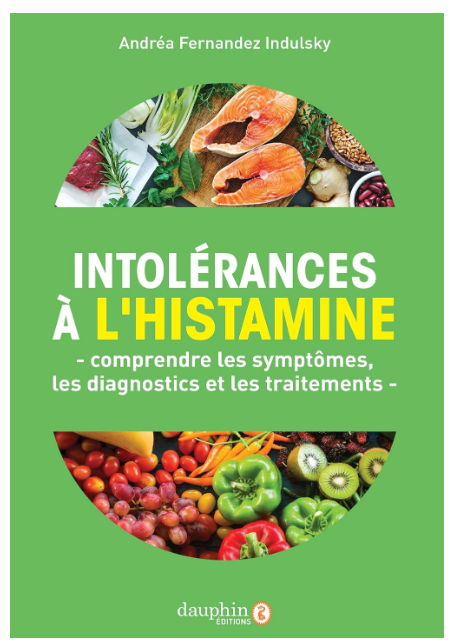Why do we get sick and how can we get better?
The current state of chronic diseases
If you suffer from one of the many chronic illnesses our contemporaries suffer from - such as irritable bowel syndrome, fibromyalgia, chronic fatigue or autoimmune diseases - you'll probably be prescribed a drug to manage your symptoms and not much more. Make do with it, one chemical drug for all and for every symptom, "one pill for all and all for one pill", that's the motto of the modern musketeers, Big Pharma version!
Yet the key to successfully treating these conditions lies in tackling their underlying cause. This is exactly the promise of functional and evolutionary naturopathy, and the approach that separates it from conventional medicine.
Let's face it, we're in the midst of the most serious chronic disease epidemic of all time. Responsible for 63% of all deaths, these chronic diseases (heart disease, stroke, cancer, chronic respiratory diseases, diabetes...) are the world's leading cause of death. Of the 36 million people who died from chronic disease in 2008, 29% were under 60, and half were women. In France, it is estimated that 15 million people (around 20% of the population) suffer from a chronic disease, compared with 30% of the population in Canada. In the United States, six out of ten adults have a chronic health problem, and four out of ten have two or more. ( 1 ) Seven of the ten leading causes of death in 2010 were chronic diseases, and two of these - heart disease and cancer - together accounted for almost half of all deaths. ( 2 )
While some of these problems (such as heart disease) are fairly well understood by conventional medicine, others are more mysterious. Conditions such as irritable bowel syndrome (IBS), chronic fatigue, diverticulosis, fibromyalgia and autoimmune diseases together affect hundreds of millions of people worldwide, but in most cases, patients are told that the causes of their illness are unknown or genetic (as if our genetics were a foregone conclusion, I reassure you they are not) and drugs are simply prescribed to manage the symptoms. It's important to remember that managing the symptoms is not the same as treating the cause, and that in the long term, we're simply hiding the problem while it continues to eat away at us.
But is it absolutely true that we don't know what causes a chronic disease? Certainly, there are particularities linked to each specific disease that we don't yet understand. But I would say that we do, in fact, have a solid understanding of the most important factors contributing to virtually all chronic diseases. This means that it is now within our power to prevent, or even reverse, many of these conditions.
The systems model of functional naturopathy
As those of you who follow me know, I train practitioners in functional naturopathy through the innov'naturopathie training program . In this training program, I discuss the "unified theory" of the causes of disease that I call the systems model of functional naturopathy. I'd like to share this with you here and use it as a springboard for our argument in this article.

As the diagram illustrates, the interaction between an individual's genome, epigenome and exposome is at the heart of what determines our health.
The genome is our complete set of DNA, containing all the information needed to build and maintain the human organism.
The epigenome is made up of chemicals that modify the genome in ways that tell it what to do, where to do it and when to do it. These modifications do not change the underlying genes, but they can be passed on to future generations.
The exposome represents the sum total of all non-genetic exposures experienced by an individual from the moment of conception to the end of life. This includes the food we eat, the water we drink, the air we breathe, the chemicals to which we are exposed, the social ties we have and the environment in which we live.
To use an analogy, the genome is like a piano; the epigenome is like the score, and the exposome is what determines how the music is written and played. The quality of the piano will certainly affect the sound it produces. But the best piano in the world will always sound bad if the score and performance are poorly interpreted. Similarly, a virtuoso pianist performing a Mozart piece will not be at his best with a poor-quality piano.
Similarly, genetics play an important role in human health and disease. However, we now know that the exposome (and its influence on the epigenome) is far more important in most cases. In fact, it is responsible for over 90% of human disease. This is why the exposome is at the heart of the systems model of functional naturopathy, and should always be the first thing to be treated, regardless of the client's complaint.
Modern diet, lifestyle and environment affect the expression of our genes and lead to pathology, which in turn causes disease and symptoms in the patient.
But what are these pathologies?
The eight fundamental pathologies underlying all chronic diseases
I believe that virtually every illness and symptom we experience is caused by one or more of the following eight fundamental pathologies:
-
Intestinal dysfunction
Intestinal dysfunction includes small intestinal bacterial overgrowth (SIBO), infections (e.g. parasites, pathogenic bacteria, viruses), low production of gastric acid, bile and enzymes, intestinal permeability and food intolerances.
-
Nutritional imbalance
Nutritional imbalance includes deficiency of nutrients such as vitamin B12, iron, folate, magnesium, zinc, EPA/DHA and fat-soluble vitamins (most common) and excess of nutrients such as iron (less common).
-
Dysregulation of the HPA axis
Deregulation of the HPA axis involves regulating communication between the hypothalamus, pituitary and adrenal glands, and balancing the production of hormones associated with these glands (e.g. DHEA, cortisol).
-
Toxic burden
Your toxic load includes exposure to chemicals (e.g. BPA, phthalates, etc.), heavy metals (e.g. mercury, arsenic), biotoxins (e.g. mold / mycotoxins ), or reduced detoxification capacity due to nutrient deficiency, gastrointestinal problems or other causes.
-
Chronic infections
These include "stealth" infections by tick-borne organisms (e.g. Borrelia, Babesia, Bartonella, Erlichia), intracellular bacteria (e.g. Mycoplamsa, Chlamydophila), viruses (e.g. HHV-6, HPV) and dental bacteria.
-
Hormonal imbalance
Hormonal imbalance can include associated metabolisms (e.g. insulin, leptin), thyroid and gonads (e.g. estrogen, progesterone, testosterone).
-
Immune dysregulation
This includes auto - immunity, underactive immune function and chronic systemic inflammation.
-
Cellular dysfunction
Cellular dysfunction can refer to altered methylation, energy production, mitochondrial function and oxidative damage.
These pathologies (and the exposome-genome-epigenome interactions that lead to them) underlie everything from obesity to Hashimoto's thyroiditis, asthma, autism spectrum disorders and depression. Understanding that the same eight basic pathologies underpin most modern chronic diseases has profound implications for how we should treat these conditions.
Conventional medicine vs. functional naturopathy
With conventional medicine, the focus is often on diseases and symptoms; it works "from the outside in". For example, let's say you go to the doctor for your annual check-up and your blood tests reveal that you have "high cholesterol". The most likely outcome in this situation is that you'll be prescribed a statin and, in some cases, told to exercise more and eat better. There is rarely a serious investigation into the cause of hypercholesterolemia in the first place. Especially since conventional medicine approaches nutrition from a caloric point of view, whereas the body's language is hormones. There's a misunderstanding and misunderstanding right from the start.
In functional naturopathy, however, we work "from the inside out". We pay less attention to the symptoms and more attention to the pathology that produces those symptoms.
High cholesterol is a symptom, not a pathology. Pathologies that can lead to high cholesterol include poor thyroid function, intestinal permeability, a disturbed gut microbiome, chronic viral or bacterial infections, insulin and leptin resistance and nutritional imbalances, to name but a few. If I find high cholesterol in a client, we'll look at all these potential pathologies and, of course, we'll also look at how genetics, diet (from a hormonal, not caloric, perspective), lifestyle and other exposome factors may contribute. Once we've addressed all the fundamental pathologies, cholesterol levels generally normalize on their own.
Whether the client's main complaint is infertility, fatigue, sinusitis or skin problems, I will focus on these eight fundamental pathologies because I know (from both clinical experience and research) that they are the most likely underlying causes of their illness. In my practice, most of my clients face not just one of these pathologies, but several.
As you can see, this is a fundamentally different approach to what is generally done in conventional settings. The disadvantage is that it requires much more testing and investigation in advance, which can be costly and time-consuming. The advantage - which wipes out all downward considerations - is that it becomes possible not only to prevent but even reverse many chronic diseases without the need to take medication for the rest of one's life.
Unfortunately, the functional naturopathy approach has not yet been integrated into the conventional healthcare model. In France, we are not ready for this approach for reasons that no longer have anything to do with medicine, but with commerce and conflict of interest.
In the USA, the prestigious Cleveland Clinic has created the Center for Functional Medicine, headed by functional medicine pioneer Dr. Mark Hyman. This is a major step towards the widespread acceptance of functional medicine, and the research in which the center is engaged will almost certainly lead to even wider recognition.
I think health insurance companies will also see the benefits of functional medicine. They'll recognize that spending a little more money upstream to properly target and treat the root of the problem will result in huge savings across the board.
These changes won't happen overnight, and we still have a lot of work to do. But the turnaround is underway!
If you're a healthcare professional and would like to train in this approach, join the turnaround by joining our training programs.
If you have a chronic health problem and would like to find out more about this approach, contact us either using our contact form or by making an appointment by telephone.
Credit: Innov' Naturopathie




